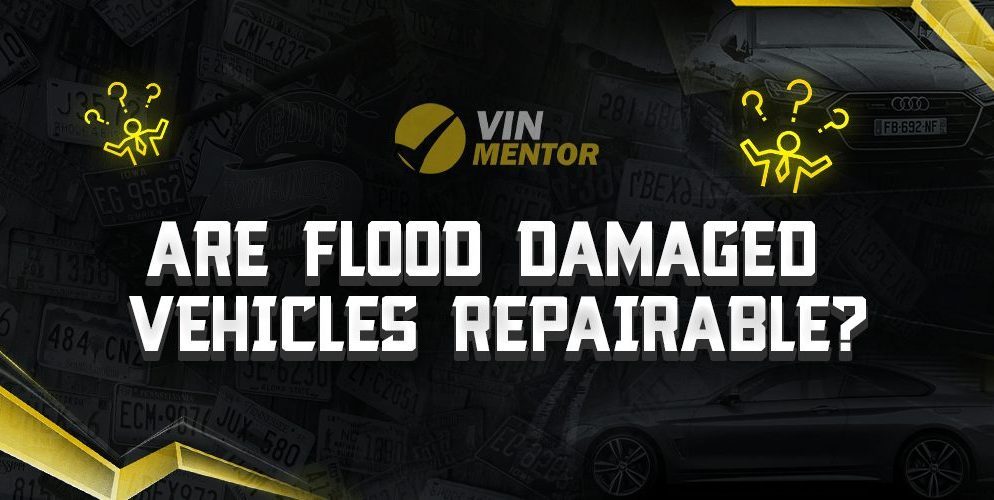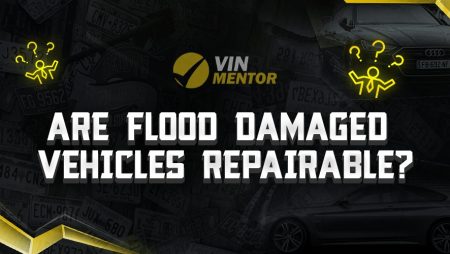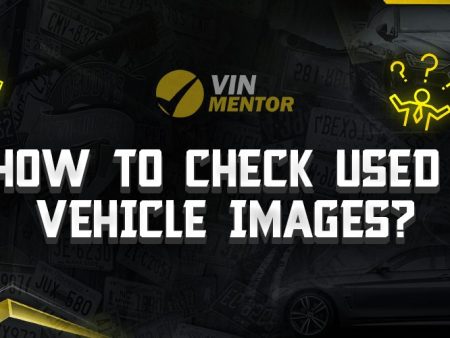

The aftermath of a flood can be devastating, and vehicles are often among the casualties. Flood-damaged vehicles pose a significant challenge to their owners, as the extent of the damage can be extensive and costly. In this article, we will explore the topic of flood-damaged vehicles and delve into whether they are repairable. Read on to discover key insights and factors to consider before making a decision.
Key Takeaways
- Severity of the flood damage plays a crucial role in determining repairability.
- Electrical and mechanical systems are particularly vulnerable to flood damage.
- The age, make, and model of the vehicle also impact repairability.
- Hidden damage can pose long-term risks and increase repair costs.
- Consulting professionals and conducting a thorough inspection is vital for informed decision-making.
Understanding the Extent of Damage
When it comes to flood-damaged vehicles, assessing the extent of the damage is crucial. Floodwaters can seep into various components, leading to potential issues with the electrical, mechanical, and interior systems. The severity of the flood and the length of exposure to water significantly impact the damage sustained. Key factors that affect repairability include:
- Electrical System: Floodwaters can damage delicate electrical components, including the vehicle’s computer systems, wiring, and sensors. These issues can be complex and costly to repair.
- Mechanical System: Floodwaters can infiltrate the engine, transmission, and other mechanical parts, causing rust, corrosion, and irreversible damage. Repairing mechanical components can be challenging and may require extensive replacement.
- Interior Damage: Floodwaters can saturate the interior of a vehicle, leading to mold, mildew, and musty odors. Upholstery, carpeting, and electrical components within the cabin may need significant restoration or replacement.
Age, Make, and Model Considerations
The age, make, and model of a flood-damaged vehicle play a crucial role in determining its repairability. Older vehicles may have fewer electronic systems, making repairs more manageable. On the other hand, newer vehicles with advanced technology may have a higher risk of irreparable damage. Additionally, luxury or rare vehicles may have specialized parts that are difficult to find or expensive to replace, further impacting repairability.
Hidden Damage and Long-Term Risks
One of the challenges with flood-damaged vehicles is the potential for hidden damage. Even if a vehicle seems operable after a flood, there may be underlying issues that could emerge later. Hidden damage can lead to long-term risks, such as electrical malfunctions, corrosion, and compromised structural integrity. It is essential to thoroughly inspect the vehicle and consider potential future problems that may arise before deciding on repairs.
Consulting Professionals and Inspection
When dealing with a flood-damaged vehicle, seeking professional guidance is crucial. Automotive experts and certified mechanics can conduct a thorough inspection to assess the extent of the damage and provide an informed opinion on repairability. They can identify hidden damage, estimate repair costs, and help determine whether it is financially viable to repair the vehicle.
Conclusion
Repairing flood-damaged vehicles can be a complex and costly endeavor. While some flood-damaged vehicles may be salvageable with extensive repairs, others may have irreversible damage that makes repairs impractical or uneconomical. Before making a decision, it is crucial to consult professionals, conduct a thorough inspection, and evaluate the potential long-term risks. To ensure you have all the necessary information about a used vehicle’s history, including any flood damage incidents, it is recommended to perform a VIN check. There are several reputable VIN Check Websites, which you can choose from our list, that can provide valuable insights into a vehicle’s history, helping you make an informed decision.
FAQ
Can flood-damaged vehicles be repaired?
The repairability of flood-damaged vehicles depends on the severity of the damage. While some vehicles can be salvaged with extensive repairs, others may have irreversible damage that makes repairs impractical or uneconomical.
What parts of a vehicle are most vulnerable to flood damage?
Electrical and mechanical systems are particularly vulnerable to flood damage. Floodwaters can damage delicate electrical components, such as computer systems, wiring, and sensors. They can also infiltrate the engine, transmission, and other mechanical parts, causing rust, corrosion, and irreversible damage.
How does the age, make, and model of a vehicle impact repairability?
The age, make, and model of a flood-damaged vehicle play a crucial role in determining its repairability. Older vehicles may have fewer electronic systems, making repairs more manageable. Newer vehicles with advanced technology may have a higher risk of irreparable damage. Luxury or rare vehicles may also have specialized parts that are difficult to find or expensive to replace.
What are the potential long-term risks of hidden damage in flood-damaged vehicles?
Hidden damage in flood-damaged vehicles can lead to long-term risks, including electrical malfunctions, corrosion, and compromised structural integrity. Even if a vehicle seems operable after a flood, there may be underlying issues that could emerge later, causing significant problems and repair costs.
Why is it important to consult professionals and conduct a thorough inspection?
When dealing with a flood-damaged vehicle, seeking professional guidance and conducting a thorough inspection are crucial. Automotive experts and certified mechanics can assess the extent of the damage, identify hidden issues, estimate repair costs, and provide an informed opinion on the repairability of the vehicle. Their expertise can help you make an informed decision based on the specific condition of the vehicle.












